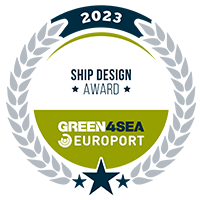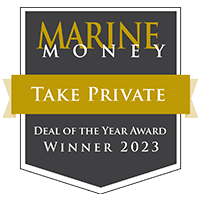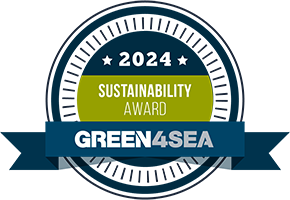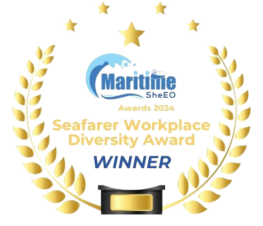The Inventory of Hazardous Materials (IHM) Certification will be required of all ships trading in the European Union region as of December 31, 2020. Rather than focus only on those vessels we have trading in the EU today, on December 14, 2020, Seaspan successfully gained certification for 112 vessels in 2020, making our entire fleet IHM certified. This approach ensures maximum trading flexibility for our customers, and achieves early compliance with the not-yet-ratified Hong Kong International Convention for the safe and environmentally sound recycling of ships, also known as the Hong Kong Convention.
Of course, this year’s events and circumstances have required some adjustments to our plans. The first of the 2020 certifications was conducted physically onboard the Seaspan Loncomilla, which achieved accreditation on June 10th. However the impacts of COVID-19 soon required Seaspan and our partners, American Bureau of Shipping (ABS), to complete the majority of this certification project remotely. Powered by advances in remote technology, remote surveys and audits augment the traditional survey experience by allowing surveyors to perform a range of actions without being physically present, while simultaneously capturing all survey and audit requirements. This leveraging of technology allows for business continuity, particularly during challenging times that may create scheduling conflicts, personnel or logistical issues.
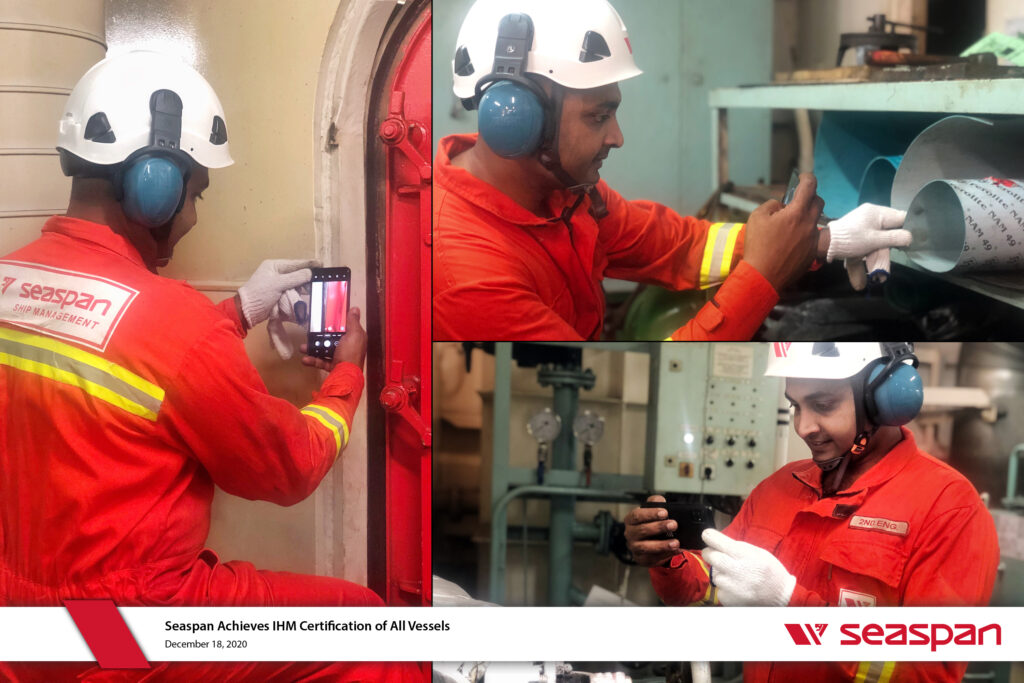
Gurmeet Ahuja, Maritime Compliance Manager at Seaspan, was able to provide a brief description of the process:
“Prior to arranging a remote survey, ship specific plans and documents are submitted to the Classification Society for the Engineering Review. In this step, ABS examines ship specific records for onboard Hazardous Materials. Upon successful completion of Engineering Review, ABS appoints a surveyor to physically/virtually verify if all the requirements are met on board a vessel. Of course, during the current pandemic we can’t have inspectors on-board our vessels, so we must conduct a virtual survey. In the virtual survey, the surveyor will ask the ship staff to randomly verify the documented inventory by taking some pictures or short video clips using cellular phones, and transmit them via the internet.”
“COVID-19 has provided the maritime industry with unprecedented challenges. But it has also forced the industry to embrace the opportunities arising from digitization and technology. Ultimately these initiatives will be crucial for sustainable shipping in the future.” Added Torsten Pedersen, Chief Operating Officer.
By adapting and responding swiftly to future challenges, Seaspan ensures that our vessels can consistently and efficiently operate across the globe, thereby providing our customers with the most flexible and effective solution.
